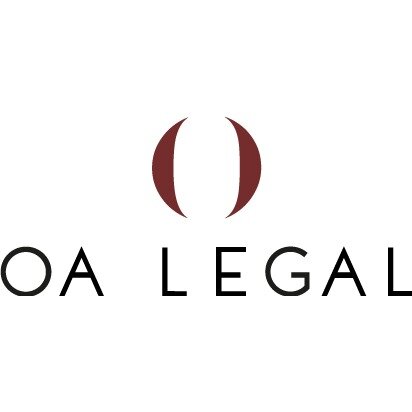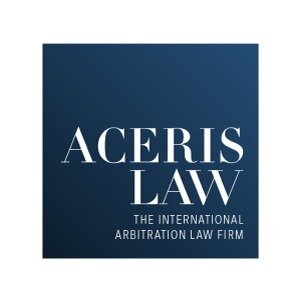Best Tax Increment Financing Lawyers in Geneva
Share your needs with us, get contacted by law firms.
Free. Takes 2 min.
List of the best lawyers in Geneva, Switzerland
About Tax Increment Financing Law in Geneva, Switzerland
Tax Increment Financing (TIF) is a public financing method that is used as a subsidy for redevelopment, infrastructure, and other community-improvement projects. In Geneva, Switzerland, TIF is utilized by municipalities to attract private investment, stimulate economic growth, and improve urban areas that are underdeveloped or in need of revitalization. The approach involves diverting future property tax revenue increases from a defined area toward the funding of an economic development project. The concept has been adopted as a tool to foster urban regeneration while also being subjected to the Swiss regulatory environment, balancing developmental demands with fiscal responsibility.
Why You May Need a Lawyer
Seeking legal assistance in Tax Increment Financing is crucial for several reasons:
- Understanding Compliance: Navigating the complex regulatory framework surrounding TIF requires an in-depth understanding of both federal and cantonal laws.
- Project Financing: Legal advice is essential when structuring deals, negotiating terms, and ensuring all financial arrangements adhere to legal standards.
- Risk Management: Legal experts can help identify potential risks associated with TIF projects and develop strategies to mitigate them.
- Contractual Agreements: Lawyers ensure that all contractual documents, between public entities and private developers, are precise and enforceable.
- Dispute Resolution: In case of disputes regarding project execution, tax allocations, or compliance issues, legal professionals provide representation and guidance.
Local Laws Overview
The legal framework governing Tax Increment Financing in Geneva is influenced by both cantonal and federal jurisdictions. Key aspects include:
- Eligibility Criteria: Projects must fall within the predefined objectives of urban development and revitalization to qualify for TIF benefits.
- Approval Process: TIF projects require multi-level approvals, involving municipal councils and sometimes cantonal authorities.
- Revenue Allocation: Strict guidelines dictate how increment revenues are calculated, collected, and allocated to ensure they are applied appropriately to designated projects.
- Public Disclosure: Maintaining transparency through public hearings and availability of documentation is mandated to encourage community involvement and oversight.
- Timeframes: TIF agreements often have specific time limitations and conditions that influence the lifespan of funding arrangements.
Frequently Asked Questions
What is the primary purpose of Tax Increment Financing?
Tax Increment Financing is designed to stimulate geographic areas in need of development by leveraging future property tax revenues to finance current improvements. The aim is to attract private investments by providing necessary infrastructure and amenities.
How does TIF impact property taxes in Geneva?
TIF does not increase property taxes. Rather, it reallocates the incremental increase from rising property values within the TIF district to repay the costs of improvements over a designated period.
Who benefits from TIF projects?
Beneficiaries of TIF projects include local communities, property owners, private developers, and municipalities. Successful projects enhance urban aesthetics, increase economic activity, and raise property values.
Are TIF projects risk-free?
No, TIF projects involve inherent risks such as overly optimistic revenue projections, regulatory changes, or economic downturns that could impact revenue collection and project viability.
Can residents oppose a TIF project?
Yes, residents can participate in public hearings and submit their concerns or opposition during consultation phases that are legally mandated in the TIF approval process.
What role does the government play in TIF?
Governments at municipal and cantonal levels facilitate TIF planning and implementation, ensuring compliance with legal standards and coordinating public-private partnerships.
Is there a limit to the area that can be designated as a TIF district?
Yes, TIF districts must be clearly defined and typically encompass areas identified for redevelopment under urban planning strategies.
How long do TIF projects typically last?
The duration of TIF projects can vary but is generally bound by statutory limits, often between 15-30 years, depending on the initial agreements and project scale.
How are TIF project outcomes evaluated?
Evaluations are conducted based on predefined performance indicators such as economic growth, increase in property values, and community benefits to ensure stated objectives are being met.
What is required to initiate a TIF project?
To initiate a TIF project, comprehensive planning, feasibility studies, stakeholder engagements, and securing necessary approvals at various governmental levels are required.
Additional Resources
Those seeking information or assistance can reach out to the following resources:
- Geneva Cantonal Urban Planning Authority: Provides guidance on land use and urban development regulations.
- Swiss Federal Institute of Technology in Zurich (ETH): Offers research and publications on economic development and urban planning.
- Swiss Real Estate Investment Organizations: Can supply insights on property development and financing.
Next Steps
If you need legal assistance in navigating Tax Increment Financing in Geneva, consider the following steps:
- Consult with a specialized real estate or tax attorney familiar with Geneva's regulatory landscape.
- Gather and organize all relevant documents related to your project and TIF query.
- Determine your objectives and retain professionals who can provide tailored advice aligned with your goals.
- Engage in a preliminary consultation to explore options and develop a strategic action plan.
Professional legal guidance can help ensure that your interests are protected and that you are compliant with all legal frameworks governing Tax Increment Financing in Geneva.
Lawzana helps you find the best lawyers and law firms in Geneva through a curated and pre-screened list of qualified legal professionals. Our platform offers rankings and detailed profiles of attorneys and law firms, allowing you to compare based on practice areas, including Tax Increment Financing, experience, and client feedback.
Each profile includes a description of the firm's areas of practice, client reviews, team members and partners, year of establishment, spoken languages, office locations, contact information, social media presence, and any published articles or resources. Most firms on our platform speak English and are experienced in both local and international legal matters.
Get a quote from top-rated law firms in Geneva, Switzerland — quickly, securely, and without unnecessary hassle.
Disclaimer:
The information provided on this page is for general informational purposes only and does not constitute legal advice. While we strive to ensure the accuracy and relevance of the content, legal information may change over time, and interpretations of the law can vary. You should always consult with a qualified legal professional for advice specific to your situation.
We disclaim all liability for actions taken or not taken based on the content of this page. If you believe any information is incorrect or outdated, please contact us, and we will review and update it where appropriate.

















